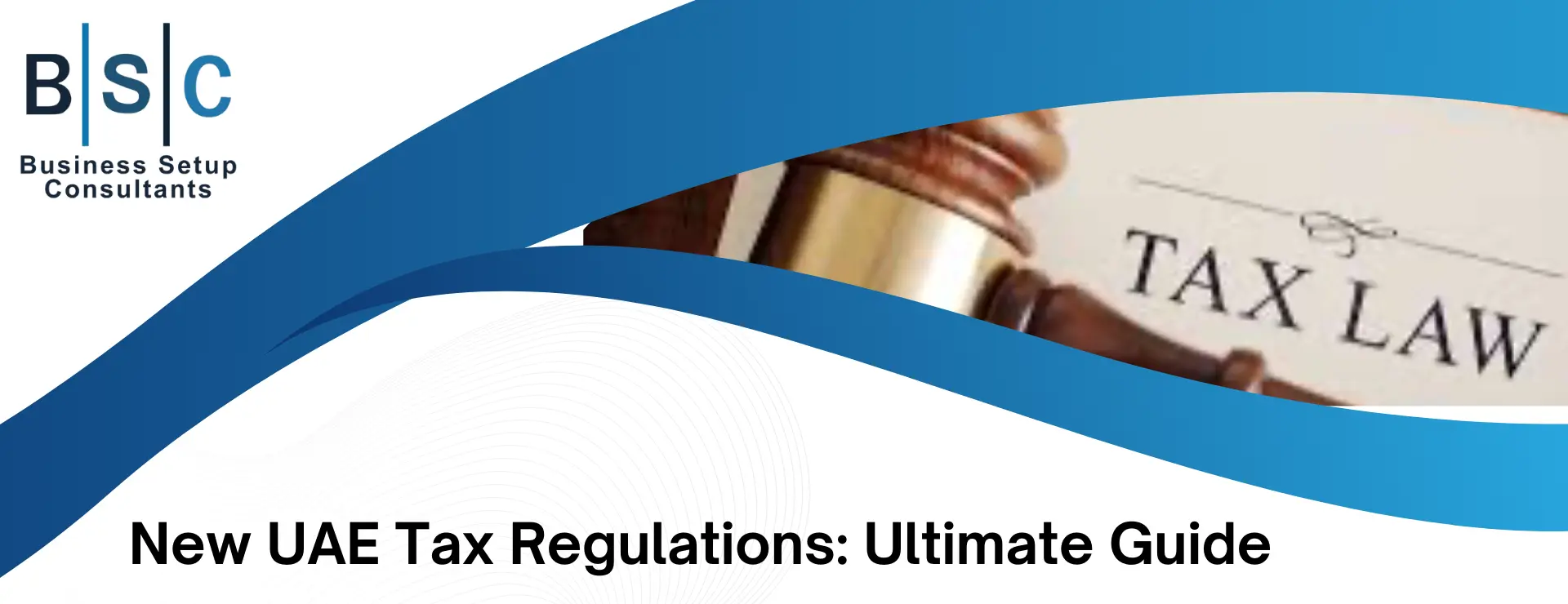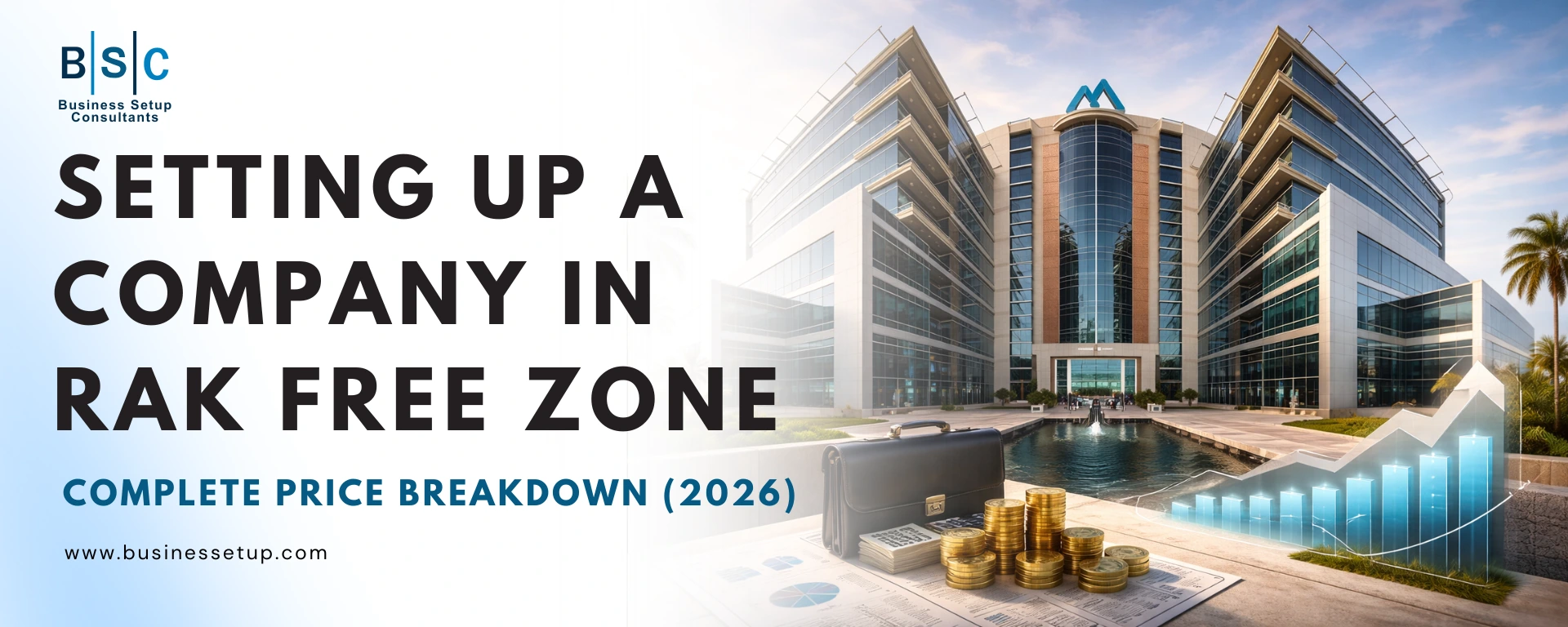
New UAE Tax Regulations: Ultimate Guide
This article highlights recent tax regulation changes in the UAE. For the most current information on taxes, please consult a local tax professional.
Since its inception, the United Arab Emirates has been known for its low tax policies. Most companies have been exempt from paying corporate tax. Instead, the government’s primary source of revenue came from the nationalized and private fossil fuel extraction industries, which were subject to a high tax on revenues.
However, as the UAE seeks to diversify its economy away from fossil fuels, an increasing number of businesses are not subject to any taxation. This, coupled with the need for more revenue to support investments in infrastructure, has led to the introduction of a 9% corporate tax effective from 2023. Alongside the rest of the GCC, the government already introduced a 5% VAT tax in 2018.
One of the reasons for introducing the new corporate tax is to align the UAE with international tax norms and to combat tax avoidance. Most developed countries impose taxes on business profits, with rates typically around 20%, and the 9% tax in the UAE is still significantly lower than the average.
New Tax Rules
Starting from June 1st, 2023, the United Arab Emirates will implement a 9% corporate tax on the profits of all businesses that generate over 375,000 AED annually. Companies that generate less profit than this amount will remain exempt from the tax.
Moreover, the UAE government has stated that large multinational firms with profits exceeding EUR 750 million will have to pay a 15% tax, which aligns with the Global Minimum Corporate Tax Rate agreement. Most companies will need to allocate funds to pay the new UAE corporate tax , as it will become effective beginning on June 1st, 2023.
Understand the New Tax System
Dubai’s corporate tax system is composed of various policies, including tax-free zones, Value Added Tax (VAT) systems, etc. The following are notable features of the tax system:
- Legal entities such as LLCs will be subject to tax. Additionally, any foreign legal entity that earns qualifying income in the UAE and is a tax resident will be taxed . However, free zones are exempt from corporate taxes if they comply with regulatory requirements. Nevertheless, free zone companies engaged in trade with the mainland UAE, must pay taxes.
- A group of companies can form a tax group that is treated as a single taxable entity. To do so, a company or subsidiary must not be an exempted party or registered in a qualifying free zone.
- Larger multinational companies with different UAE business conditions will be subject to different tax rates. The UAE corporate tax regime allows for a credit against foreign tax paid in a foreign jurisdiction on foreign tax income that has not been exempted to avoid double taxation.
- The participation exemption in corporate tax law exempts corporate tax on dividends received or shares sold by a subsidiary company. In addition, charities, public benefit organizations, investment funds, and wholly government-owned companies are exempt from corporate taxes.
- Taxable income is generally determined by the net profit or loss indicated in the company’s financial statements. In the case of a company loss, the business can offset the value against taxable income up to 75% in the future.
What About Taxation for Free Zone Companies?
Companies in free zones will continue to enjoy the benefits of the incentives agreed upon in their respective zone charters. Nonetheless, free zones may opt to alter their regulations in the future, which could lead to the implementation of taxes.
How to Prepare for the New Tax Regime?
All entities subject to the corporate income tax must register for it and obtain a Corporate Tax Registration Number. In addition, businesses must prepare and submit a corporate tax return with supporting records for every tax period. Companies are not required to make advance corporate tax payments in the UAE. The Federal Tax Authority (FTA) administers, collects, and enforces the UAE’s corporate tax. Before June 2023, the FTA will publish guidelines for registering and filing corporate tax returns on its website.
Many countries allow companies to pay taxes, including corporate tax, in multiple payments. The FTA has not yet established specific guidelines for paying and filing UAE corporate tax. However, it is conceivable that companies may have the option to pay corporate tax in installments, subject to the FTA’s future regulations.
UAE New Tax Law on Various Tax Systems
The Corporate Tax
The centerpiece of the UAE’s tax reforms is the introduction of a federal corporate tax. This tax will be levied at a flat rate of 9% on the adjusted net income of businesses operating in the UAE, including companies incorporated in the UAE, foreign banks, and foreign companies with a permanent establishment or generating qualifying income (taxable person) in the UAE.
Certain entities, such as government-owned companies, investment funds, and businesses engaged in specific activities (free zone person), may be exempt from corporate tax or subject to different rates based on the cabinet decision.
Value Added Tax (VAT)
The existing Value Added Tax (VAT) system in the UAE, introduced in 2018, remains largely unchanged. The standard VAT rate is currently set at 5%, applicable to the majority of goods and services.
However, the new tax regime has proposed potential modifications to the VAT rates based on the ministerial decision, aimed at aligning with international best practices and addressing evolving economic circumstances. Businesses must stay vigilant for any updates and prepare for the potential impact on pricing, cash flow, and compliance obligations.
Excise Duties
The UAE has had an excise tax system in place for certain products, such as carbonated drinks, energy drinks, and tobacco products. Under the new tax regime, the government may consider expanding the scope of excise duties to include other products or services deemed harmful to public health or the environment based on the UAE ministry’s recommendations.
Industries potentially affected by these changes should closely monitor developments and assess the implications for their operations and pricing strategies.
Are Personal Income Taxes on the Horizon?
With the introduction of VAT in 2018 and general corporate taxes in 2023, it’s no wonder many UAE residents wonder if a personal income tax is next. The FTA has not provided any information that alludes to the introduction of personal income tax across the UAE.
One reason why the UAE does not have an income tax is because of its primarily foreign workforce. The UAE has made a conscious effort to create an expat-friendly environment that attracts talent from across the globe, and a zero personal income tax rate can be a significant draw for people.
Tax Administration and Compliance
To ensure effective implementation and enforcement of the new tax regime, the UAE is expected to establish a dedicated tax authority or reinforce existing regulatory bodies. This authority will oversee tax filing and payment procedures, as well as impose penalties for non-compliance.
Businesses must familiarize themselves with the new tax administration processes, including tax residency rules, transfer pricing guidelines, and ensure they have robust systems in place to maintain compliance and avoid potential financial penalties. The UAE’s privacy statement will outline data privacy measures.
Impact on Businesses
The introduction of the federal corporate tax and potential changes to VAT and excise duties will have far-reaching implications for businesses operating in the UAE across various sectors, including manufacturing, trading, services, real estate, and financial services.
Companies will face increased compliance costs and challenges in adapting to the new tax regime, such as maintaining accurate financial statements and account information for each financial year.
However, this also presents opportunities for tax planning and optimization, as businesses can leverage various strategies to minimize their tax liabilities while remaining compliant, especially regarding related party transactions and business activities.
Speak to a Tax Professional
Let’s face it, nobody loves taxes, but that doesn’t mean you should forget about them until it’s time to file your return. Right now, the best course of action would be to speak to a local tax professional to understand your potential tax liability and ensure you are compliant and aware of all the critical deadlines. You can use the time between now and when the tax is in place to ensure that your financial accounting is done most tax efficiently. If you need assistance, one of our consultants can put you in touch with a local tax professional.








